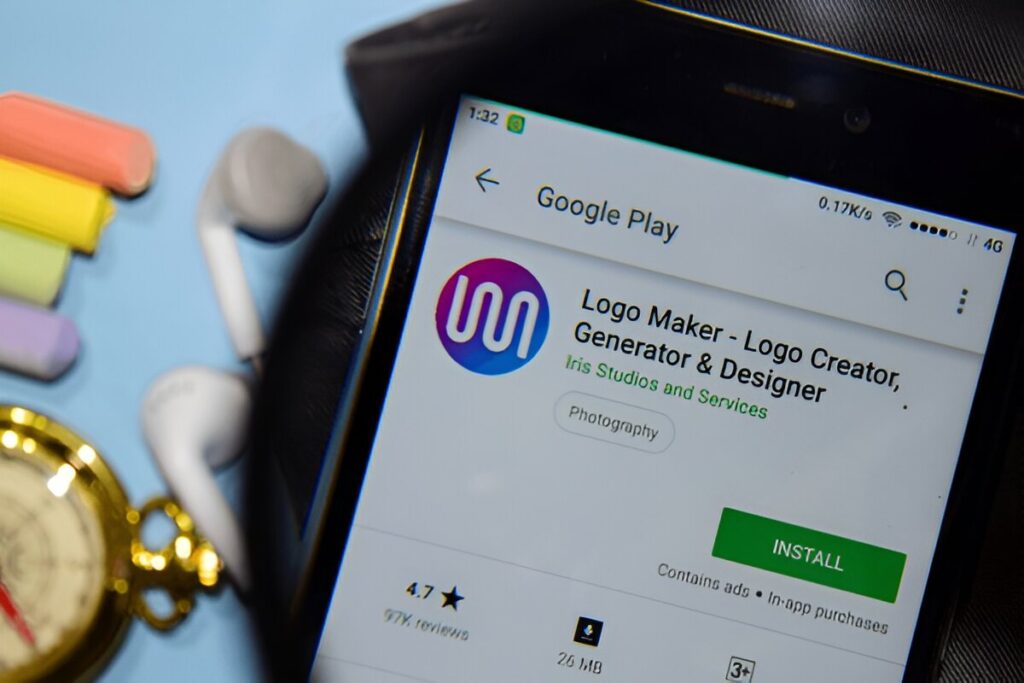If you’ve been looking for profitable digital products to sell in 2025, you’re in the right place. Digital product is a goldmine because of its flexibility, profit margin, zero shipping stress. it also offer multiple methods from Canva templates to online courses that are niched, this is the new blueprint for creatives who wants make more money in 2025.
What are Digital Products?
Digital products can be sold and distributed online as non-visible assets or media pieces. Think of them as intellectual property packaged into a downloadable or access-controlled format. Unlike physical products, digital products can be replicated infinitely at virtually no additional cost, making them incredibly attractive for profit margins and passive income streams. They range from eBooks and templates to stock photos, printables, and even online courses. Because they don’t require physical storage or shipping, your margins are higher—and your business has 100% flexibility to expand because The market for digital products is expanding at a steady rate. Here’s why now is the perfect time to jump in:
1. Increased Demand for Online Learning: People are constantly seeking new skills, knowledge, hobbies, and professional development, creating online courses and educational resources incredibly popular.
2. Rise of the Economy: More individuals are turning their passions into professions, fueled by accessible tools and platforms for creating and selling digital goods.
3. Convenience is king; customers love and value instant access and immediate solutions, so convenience reigns supreme. This is exactly what digital products do, allowing customers to immediately download and use products.
4. Integration of AI: Content creation, personalization of user experiences, and automation of digital product marketing are all becoming increasingly simple thanks to artificial intelligence.
15 Profitable Digital Products To Sell in 2025
The key to coming up with a successful digital product idea is combining your expertise with demand from the market. For 2025, our top recommendations are:
1.Niche-Specific Online Courses (Micro-Courses): There are short, highly focused online courses designed to teach a specific skill or topic within a niche. Unlike traditional courses, micro-courses are concise. Instead of broad courses, they focus on solving one specific problem for a very specific audience.
How to make profit
- Choose a Profitable Niche: Focus on high-demand topics like digital marketing, coding, personal finance, or specialized skills, or even vocational courses.
- Create High-Quality Content: Keep courses short, simple, engaging, and actionable. Use video, PDFs, and interactive elements.
- Leverage Online Platforms: Try Selling on Udemy, Teachable, Thinkific, or your own website for better control.
- Use Subscription Models: Offer memberships or bundles for recurring revenue.
2. Interactive Digital Journals & Planners: Beyond basic PDFs, think about journals optimized for digital note-taking apps (like GoodNotes or Notability) with hyperlinked pages, embedded audio prompts, or even AI-generated prompts for reflection. Combines the growing trends of self-improvement, organization, and digital convenience.
- Create Niche Planners: Create highly targeted planners. Design very detailed planners (e.g., for students, remote workers, or specific hobbies).
- Sell on Marketplaces: Use platforms like Etsy, Upwork, or Gumroad for easy setup and audience access.
- Offer Bundles/Add-ons: Sell complementary items like digital stickers or extra templates.
- Showcase Visually: Use engaging videos and images to demonstrate how they work.
- Targeted Marketing: Promote on social media (Pinterest, TikTok, Instagram) and with relevant keywords.
3. Customizable social media content bundles ; They are pre-made sets of graphics, captions, templates, and calendars that businesses or influencers can personalize and post on their social media platforms. Small businesses and content creators struggle with consistent, high-quality social media content. Offer done-for-you templates that are easily customizable, save time, and deliver professional results for businesses that need to maintain an online presence.
How to make money
- Choose niches like coaches, beauty brands, or small businesses; these are fast selling.
- Sell them out on platforms like Etsy or Gumroad, or create your own website.
- by offering monthly packs or customizations for an extra fee.
Example: “Engagement-Boosting Instagram Carousel Templates for E-commerce
Brands” or “TikTok Hook & Script Prompts for Service Providers.”
4. Membership Communities with Exclusive Resources: Organize space where people with a shared interest or goal can connect and access premium content. Online groups or platforms where members pay a recurring fee (usually monthly or annually) to access premium content, unique interactions, keep client matters confidential, and a sense of belonging not available to the general public.
- How to make money
- Provide exclusive content or a community for a particular audience
2. Select a Platform: For hosting and management, use membership software like Mighty Networks, Patreon, MemberPress, or Circle. Offer Tiers:
5. Create different membership levels with varying benefits and price points.
Deliver exclusive content (courses, webinars, templates), direct access (Q&As, coaching), and encourage community engagement (forums, private chats) consistently to provide high value.
Market the Exclusivity: Highlight the unique benefits and sense of belonging that members get, often through content marketing and social proof.
Example: “The Sustainable Living Collective” (with exclusive guides, workshops, and a forum) or “Indie Author’s Toolkit Membership” (with writing prompts, marketing templates, and critique groups).
Why it works: Provides recurring revenue and builds a loyal community around your expertise.
6. Canva templates are pre-designed layouts that users can easily modify for a variety of purposes without having to have a lot of design experience. They are an excellent digital product because they provide individuals and businesses with convenience and a professional appearance.
How to make money
Identify a Niche: Don’t just make generic templates. Focus on a specific audience or need (e.g., social media templates for real estate agents, printable budget planners for students, brand kit templates for small businesses).
7. Design High-Quality Templates: Create visually appealing, user-friendly, and highly customizable templates in Canva. Make sure they are unique and solve a problem for your target audience.
Create a PDF with Template Link: Once your template is done, get the “template link” from Canva. You’ll then create a simple PDF document containing this link, which is what your customers will download after purchase.
Choose a Selling Platform:
Etsy: Popular for digital products, has a huge built-in audience, but has listing and transaction fees. Great for beginners.
Gumroad/Payhip: Simpler platforms for direct sales, good for beginners to intermediate sellers.
Your own website, such as Shopify or WooCommerce:
This option gives you complete control over your brand and profits, but it takes more setup and marketing work to get people to visit it.
Price Strategically: Research what similar templates sell for. While maintaining a competitive price, we also value your time and design expertise.
Market Your Templates:
Visually showcase: Use attractive mockups and videos to demonstrate how your templates look and work.
SEO: Use relevant keywords in your product titles and descriptions on marketplaces and your website (e.g., “Canva Instagram templates,” “small business branding kit,” “editable resume template”).
Social Media: Promote on platforms like Pinterest, Instagram, and TikTok, showing how your templates save time and improve results.
8. A Notion template is a pre-built page or set of pages that you can duplicate and customize for your own use. You can sell well-designed, useful pages like content calendars, budget trackers, and planners online with Notion templates. Focus on a niche—like students, freelancers, or creators—and design templates that solve specific problems. Once done, share them using Notion’s “duplicate” feature and sell through platforms like
Choose a Platform for Selling: Notion Marketplace: Notion’s official platform (requires approval and Stripe).
Gumroad and Payhip are user-friendly platforms for direct digital product sales.
Etsy: Popular for digital goods; link your template PDF in your listing.
Your Own Website: For full control (e.g., Shopify + digital download app).
Create a PDF that can be downloaded. In this PDF, you’ll find a link to your Notion template and instructions on how to copy it. This is what customers get.
Market Your Template: Promote it on social media (Pinterest, TikTok, Instagram), in Notion communities, and through content marketing.
How It Works:
Within Notion, a page or system is created. You click “Share to web” and enable “Duplicate as template.
Share the link—buyers or users can duplicate it into their own Notion account and use it right away.
Also Read: The Best Digital Illustration Tools To Bring Your Artwork To Life
Conclusion
There is a lot of potential in digital products. There is room for your individual skills and insights, whether you are an experienced expert or just starting out in the creative field. By focusing on high-demand niches like AI-powered productivity tools, creating high-quality con


